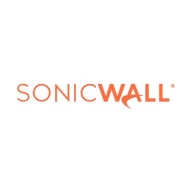


SonicWall TZ and Juniper vSRX deliver compelling security solutions. SonicWall TZ is favored for its ease of use and practical features like effective SSL VPNs, while Juniper vSRX excels with scalability and virtualization capabilities, making it more suitable for complex environments.
Features: SonicWall TZ is noted for its user-friendly interface and standout features including SSL VPNs, threat prevention, and content filtering that assist with remote work. Juniper vSRX offers advanced application and content filtering, praised for ease of installation and cloud deployment capabilities. SonicWall shines for small businesses with easy deployment, whereas Juniper's flexibility aligns well with scalable applications.
Room for Improvement: SonicWall TZ's user interface and high licensing costs face criticism, along with limited scalability and performance challenges with advanced features enabled. Juniper vSRX users suggest enhancing GUI user-friendliness, support quality, and pricing competitiveness, along with better integration with modern security technologies like zero-trust.
Ease of Deployment and Customer Service: SonicWall TZ offers straightforward deployment, but customer service experiences are mixed with reports of long wait times. Juniper vSRX provides versatile deployment across various cloud environments but requires enhancements in technical support reliability.
Pricing and ROI: SonicWall TZ is seen as cost-effective for small to medium-sized businesses, but recurring subscription costs might add up. Juniper vSRX offers flexible package options and strong performance, though ongoing costs are perceived as high. Both products offer good ROI in their respective niches.
Clients are now comfortable and not wasting productive hours on IT support.
The automation part is giving us a cost benefit and speed; we can react faster.
It's a very useful tool to mitigate and protect your enterprise.
That is a reason to buy a firewall, and it is challenging to put a monetary value on security.
The quick resolution of issues with Fortinet FortiGate is due to the support of the company and the fact that the equipment is easy to work with.
I would rate the technical support for Fortinet FortiGate a ten out of ten.
As a solution provider, when I encounter problems, I connect directly with Fortinet support, and they provide solutions within a very short time.
I would rate their support a ten out of ten.
Customer service is excellent.
For support, I would rate SonicWall TZ five out of 10.
They scale up really well from smaller models like the FortiGate 40 and 50 to bigger sites with the FortiGate 100 for more throughput - up to enterprise datacenters.
The variation comes in terms of the interfaces and throughputs, but from a security perspective, you get the same benefit, irrespective of whether you have an entry-level unit or an enterprise.
We determine sizing based on multiple factors: number of users, available links, traffic types, server count, services in use, and whether services will be published.
Juniper vSRX is a highly scalable solution, and I would rate its scalability a nine out of ten.
We're experiencing 99.999% availability consistently.
I would rate the stability of Fortinet FortiGate a ten out of ten.
Currently, we are experiencing a general outage of one of the main internet service providers of the Dominican Republic, and we have not been impacted in our operations because with SD-WAN, we have another internet service provider and we are working with the second WAN connection without any disruption.
In terms of stability, SonicWall doesn't have performance issues.
SonicWall TZ rates 10 out of 10 for stability.
SonicWall TZ is definitely stable and offers a good value for money.
These sessions should be around five to ten minutes long, allowing users and partners to quickly grasp the information without disrupting their daily tasks.
The solution should be able to implement machine learning and analytics of all the logs for threat detection and protection.
It would be better for customers to get immediate replacements even with a standard subscription.
I would suggest improving the pricing, particularly the licensing model.
Integration with other vendors, especially with VPNs, can be challenging and requires more effort when configuring.
SonicWall TZ could benefit from newer technology.
The VPN license should be improved by providing more free SSL VPN licenses.
Last year, I renewed the support for three years, which can sometimes be expensive but depends on the security benefits and how it helps us.
It offers cost savings as it is generally cheaper than the competition.
It is about 20% cheaper.
The pricing is competitive, being neither the most expensive nor the cheapest option.
More licenses are required to purchase the perpetual license for SSL VPN and Global VPN.
When comparing similar products across vendors, there may be a small difference in cost.
I would also position its pricing as a three, where one is the lowest price and ten is the highest.
These features help reduce our downtime, manage the ISPs, and deploy SLAs for all the website traffic.
The most valuable feature of FortiGate is FortiView which provides proactive monitoring.
We got a firewall and gave an SSL VPN to my client to connect to their servers, after which, such kind of activities involving ransomware attacks stopped.
These features are crucial for our network security.
For SMB segments, SonicWall performs well.
It was beneficial during COVID for remote work through its VPN functionality.
The advanced gateway security features such as web filter, application control filter, IPS, ideas, gateway antivirus, anti-spyware, and botnet filter are valuable.
| Product | Market Share (%) |
|---|---|
| Fortinet FortiGate | 18.8% |
| SonicWall TZ | 2.4% |
| Juniper vSRX | 0.6% |
| Other | 78.2% |



| Company Size | Count |
|---|---|
| Small Business | 357 |
| Midsize Enterprise | 133 |
| Large Enterprise | 188 |
| Company Size | Count |
|---|---|
| Small Business | 23 |
| Midsize Enterprise | 8 |
| Large Enterprise | 9 |
| Company Size | Count |
|---|---|
| Small Business | 62 |
| Midsize Enterprise | 16 |
| Large Enterprise | 13 |
Fortinet FortiGate is a versatile network security tool offering features like VPN, firewall, web filtering, intrusion prevention, and scalability. It is known for its performance and integration with other Fortinet products, making it a preferred choice for robust cybersecurity.
Fortinet FortiGate stands out as a comprehensive cybersecurity solution with strong performance and ease of configuration. It delivers unified threat management, integrating features such as dynamic routing, SD-WAN support, and centralized management. Despite its strengths, improvements in the web interface's stability, pricing structures, and reporting capabilities are needed. Users seek better integration with third-party tools and automation advancements to enhance the experience further. These enhancements, alongside improvements in bandwidth management and the reduction of licensing costs, are points of interest for users looking to capitalize on FortiGate's extensive capabilities.
What are Fortinet FortiGate's key features?Fortinet FortiGate is widely implemented across industries as a primary firewall system for securing internet gateways and safeguarding data centers. It supports businesses in achieving SD-WAN integration and enhances cybersecurity by providing essential features like antivirus, web filtering, and application control. Enterprises utilize FortiGate for securing remote connections and ensuring compliance with security standards, making it adaptable for different network sizes and industries.
Juniper vSRX is a virtualized security platform that provides advanced threat protection for virtualized and cloud environments. It offers a comprehensive set of security features, including firewall, VPN, intrusion prevention system (IPS), and unified threat management (UTM).
With its scalable architecture, the vSRX can be easily deployed and managed across multiple virtual machines, making it ideal for organizations with dynamic and distributed networks. It also supports high-performance data processing, ensuring minimal impact on network performance.
vSRX is designed to integrate seamlessly with Juniper's broader security ecosystem, enabling centralized management and visibility across the entire network.
We monitor all Firewalls reviews to prevent fraudulent reviews and keep review quality high. We do not post reviews by company employees or direct competitors. We validate each review for authenticity via cross-reference with LinkedIn, and personal follow-up with the reviewer when necessary.